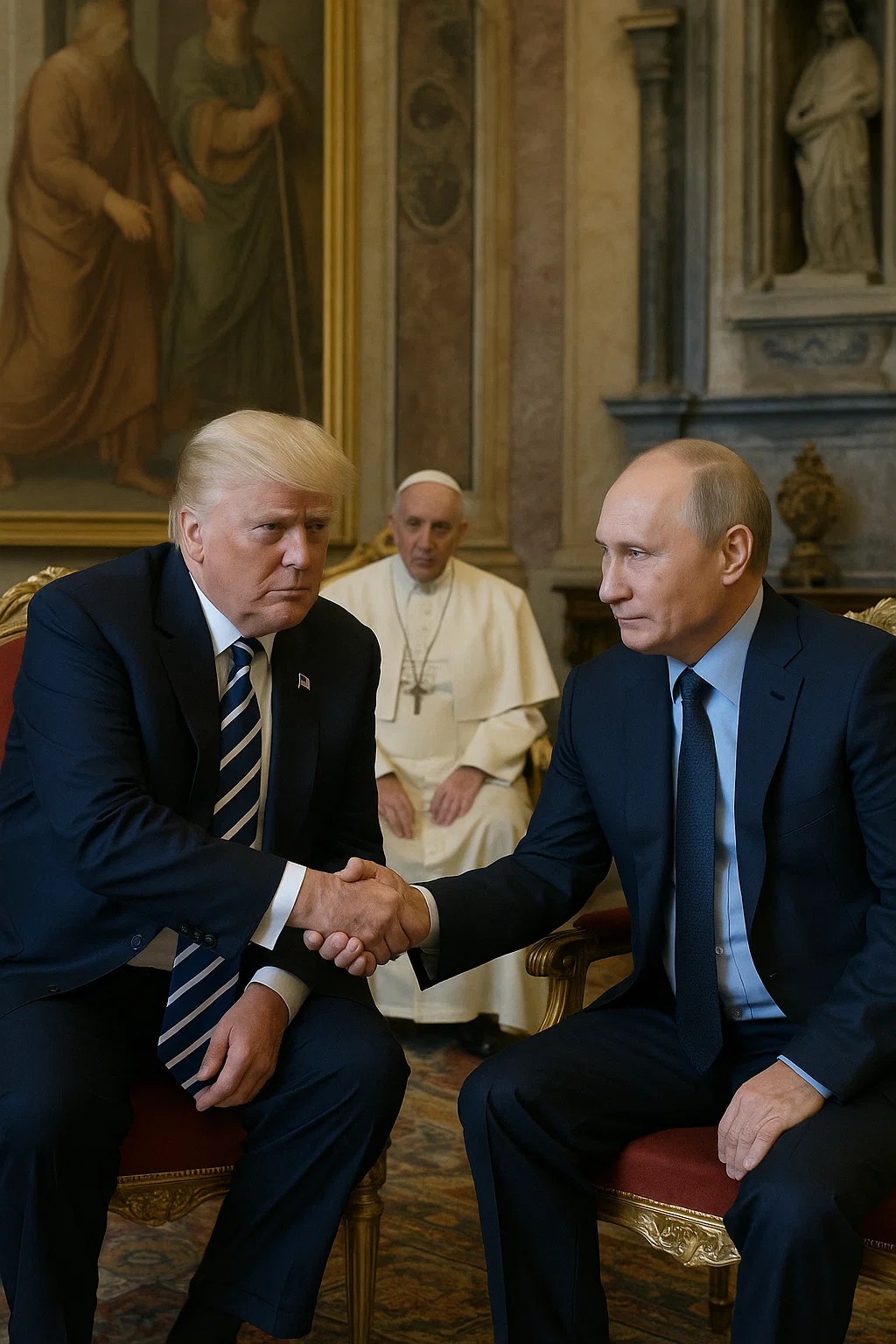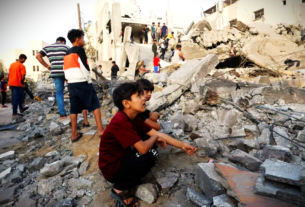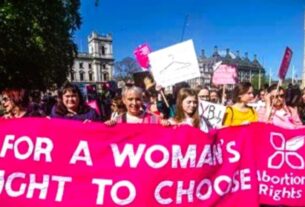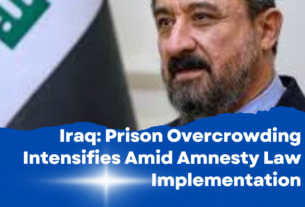After a two-hour call between Trump and Putin, the stage is set for potential ceasefire negotiations between Ukraine and Russia but can diplomacy born of ego and urgency hold?
Washington, D.C. – May 20, 2025 In a twist few saw coming but many anticipated with caution, former adversaries on the world stage Donald Trump and Vladimir Putin may have cracked open a door long thought sealed shut. After a two-hour phone call between the U.S. President and the Russian leader, Trump proclaimed that Ukraine and Russia would “immediately” begin ceasefire negotiations. The Vatican, he suggested, could host the peace talks.
The diplomatic bombshell sent waves through capitals across the globe. European leaders scramble to respond, Ukraine’s President Volodymyr Zelensky held emergency calls with Trump and EU allies, and even the Holy See was reportedly preparing for a possible role in brokering the end to Europe’s most devastating war in generations.
What’s clear is that Monday’s conversation conducted via encrypted line between Putin’s Sochi retreat and the White House was more than ceremonial. According to both U.S. and Russian sources, the two leaders not only discussed peace terms, but also the future of U.S.-Russia trade, a potential prisoner exchange, and even exchanged personal pleasantries. Putin congratulated Trump on the birth of his grandson, and Trump assured him, “You can pick up the phone anytime.”
But while Trump called the discussion “excellent,” critics warn that peace by personality risks becoming theater over substance.
The Vatican Gambit
Perhaps the most symbolic element of this diplomatic surge is the Vatican’s potential role as a host for ceasefire negotiations. Pope Leo XIV, whose tenure has been marked by quiet but persistent diplomacy, has reportedly welcomed the idea. U.S. Vice President JD Vance met with the Pope earlier that day, a move now understood to have been part of broader peace overtures.
“Let the process begin,” Trump declared on Truth Social. “The Vatican has stated it would be very interested in hosting.”
For some, the choice of venue signals a move toward moral high ground or at least the appearance of it. For others, it’s political theater. Yet even skeptics acknowledge the symbolism of convening in a space meant for reflection and reconciliation.
From Megaphones to Memoranda
While Trump’s statement framed the talks as imminent, Russia’s messaging was more measured. Kremlin aide Yuri Ushakov said Moscow is prepared to work on a memorandum regarding peace negotiations, though no timeline was given. Ushakov emphasized the “impressive prospects” of future U.S.-Russia relations, especially post-war trade.
It’s a shift from the Kremlin’s posture in recent months. The brutal war, sparked by Russia’s 2022 invasion of Ukraine, has dragged on with catastrophic consequences. Over 500,000 dead, tens of millions displaced, and entire regions reduced to rubble. Now, with battlefield stalemates and economic fatigue on all sides, diplomacy is back in vogue.
A War’s Weariness and a Legacy Play
Ukraine’s Zelensky welcomed the talks cautiously, suggesting a high-level summit between leaders of Russia, Ukraine, the U.S., EU, and UK could be hosted in Switzerland, Turkey, or the Vatican. While he remains wary of Russian intent, the dire conditions at home and wavering Western unity are pushing Kyiv toward the table.
Trump, for his part, sees a legacy-defining opportunity. With elections looming and a deeply polarized electorate, foreign policy success, especially one involving peace, could tilt public perception.
“This is Trump at his most Trumpian,” said international relations expert Dr. Linnea Morozov. “He believes in the power of the personal relationship, the deal, the headline. But history reminds us that peace is built not on charisma but compromise.”
Echoes of the Cold War
Still, the possibility of détente, however remote, recalls echoes of previous eras where the U.S.-Russia talks reshaped the global order. Could a modern-day Vatican Summit mirror the 1985 Geneva Summit between Reagan and Gorbachev?
Experts remain skeptical. “Putin may play along,” said Sam Kiley, senior analyst at The Independent. “But he’s still pulling the strings, and any peace he signs will be on his terms.”
Final Word: Peace or Pageant?
Whether this marks the dawn of peace or the start of another geopolitical pageant remains to be seen. But what’s undeniable is that the war-weary world is watching not for another dramatic announcement, but for quiet, concrete steps toward an end to suffering.
For now, a conversation that started with “Vladimir, when are we going to end this?” has turned into the most serious movement toward peace in over three years.
But as ever in diplomacy, the distance from phone call to treaty is measured not in hours, but in trust.




